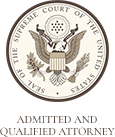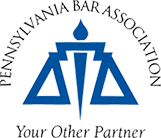When law enforcement arrest drivers for alleged driving under the influence of alcohol, they will ask motorists to provide breath or blood samples for chemical testing. Chemically analyzed to determine drivers’ blood alcohol concentration levels, the results of such tests may serve as evidence against them at trial. To avoid potentially incriminating themselves, people may consider refusing such tests, but doing so may have serious implications.
Drivers should understand the state’s implied consent law to help protect their rights in the event of a DUI arrest.
Requiring compliance with chemical testing requests
According to state law, by operating a vehicle in Pennsylvania, people automatically agree to provide breath or blood samples to determine their BAC levels. Despite the implied consent law, drivers arrested for alleged DUI may choose to refuse to submit to such chemical testing. In doing so, however, they may incur civil penalties.
Facing civil penalties
According to the Pennsylvania Department of Transportation, drivers who refuse chemical testing for BAC may face civil penalties, regardless of whether the court finds them guilty of drunk driving. Upon refusing a BAC test, drivers automatically lose their driving privileges for a minimum of one year. If the court finds them guilty of DUI, they may have their driver’s licenses suspended for an additional 18 months. People with prior DUI convictions or who have previously refused chemical testing may face a driver’s license suspension of up to three years. Drivers may face these suspensions in addition to any criminal consequences levied by the court for pleading guilty or receiving a guilty verdict at trial.
Paying the restoration fee
Those who refuse chemical testing for BAC determinations after a DUI arrest must also pay a chemical test refusal restoration fee. The amount they must pay depends on whether they have previously declined to submit to BAC testing. Drivers with no previous offenses must pay a fee of $500. The fee increases to $1,000 for a second refusal and $2,000 if drivers have refused chemical testing three or more times.



